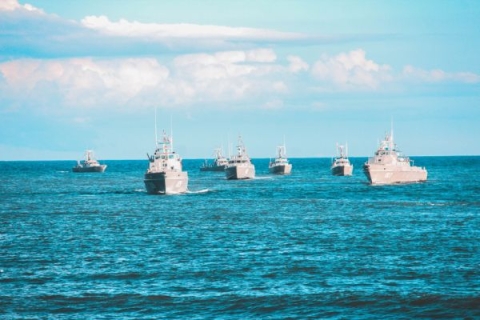

April will be a time to think back 40 years to the start of the Falklands War, when Argentinian forces invaded the British overseas territory in the South Atlantic
30 March 2022
11 min listen
Although the world is focused on the current conflict in Ukraine, April will also be a time to think back 40 years to the start of the Falklands War.
It began on 2 April 1982, when Argentinian forces invaded the British overseas territory in the South Atlantic.
In a new podcast, Dr Matthew Heaslip, a naval historian from the University of Portsmouth, looks back at events that saw a Royal Navy Task Force leave the South Coast city – sailing thousands of miles to the other side of the world to liberate the Falkland Islands.
As a mature student who did not have an undergraduate degree in History before starting with us as a distance learner, this is an incredible achievement for Peter, and we are delighted to see his success recognised with this prestigious award.
Dr Matthew Heaslip, Lecturer in Naval History
He says: “The Royal Navy has always been built around the idea of expeditionary warfare – the idea of taking a force across to another area of the world and projecting power- particularly in landing forces to seas and coastal environments, such as the Falklands.”
Dr Heaslip reflects on the mammoth challenge the conflict posed, the significant loss of ships and the lives that were also tragically lost. He also considers what lessons have and might be learnt. He says, “after the conflict it led to the RN facing some hard truths and the British public questioning how it was that these ships were lost.”
Today’s Royal Navy looks very different in shape and size to the one that Britain possessed in the 1980s. In this special podcast, Dr Heaslip assesses how the Royal Navy outperformed its Argentinian counterpart, what has changed since the conflict and, crucially, whether British Forces could achieve the same result with today’s resources.
